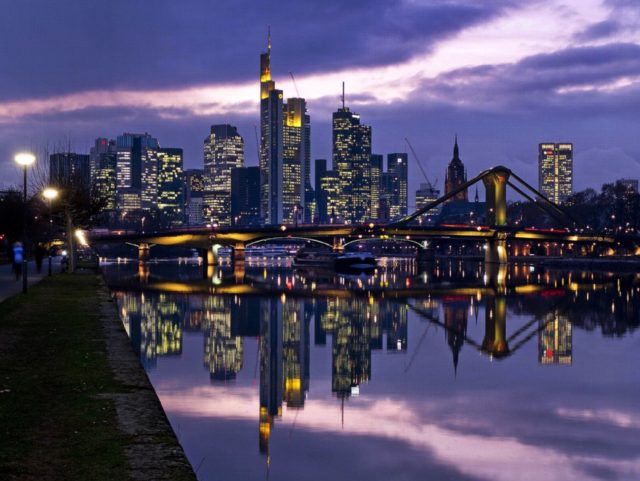LONDON (AP) — Further signs of a cooldown in the eurozone economy emerged Friday, weighing on expectations that the European Central Bank will start raising interest rates this year.
Inflation across the 19-country currency union fell in December to an eight-month low in the wake of the recent slump in oil prices. And a closely watched survey found that the eurozone economy barely grew during the month largely because of popular protests that brought much of France to a standstill.
Eurostat, the European Union’s statistics agency, said consumer prices were up 1.6 percent in the year to December, down from the previous month’s 1.9 percent. Inflation is now at its lowest level since April.
A slump in energy prices in the last months of 2018 was the main reason for the decline: over the year, they were up 5.5 percent against the 9.1 percent recorded in November.
When stripping out potentially volatile items such as energy, alcohol, food and tobacco, inflation remains stubbornly low. The so-called core rate was steady at 1 percent in the year to December.
The fall in the headline inflation rate, coupled with the consistently low core rate, will likely rein in expectations that the European Central Bank will raise interest rates soon, especially if oil prices remain subdued. The euro fell on the news to trade 0.2 percent lower on the day at $1.1398.
The ECB, which brought its emergency bond-buying stimulus program to an end last month, aims for an inflation rate of just below 2 percent. It has kept its main interest rate at zero for years to shore up growth and inflation.
Bert Colijn, senior eurozone economist at ING, said headline inflation is expected to move towards the core rate this year and could even fall to around 1 percent if oil prices remain around $50 a barrel.
“This leaves the ECB in an awkward spot with regards to their first rate hike,” he said. “According to its forward guidance, the ECB will leave rates unchanged through the summer, but with inflation moving away from the target and an economy that is slowing, the question is whether the ECB will see a chance to hike at all.”
Over the past couple of years, the eurozone economy has been recovering from a debt crisis that nearly spelled the end of the euro. That expansion appears to be grinding to a halt.
Financial information company IHS Markit said Friday that its composite purchasing managers index — a broad gauge of economic activity across the manufacturing and services sector — declined to 51.1 points in December from 52.7 the previous month. An equivalent fall in January would effectively point to recession as anything below 50 indicates a contraction in output.
The survey found that the slowdown partly reflected weaker activity in France, where yellow vest protesters reportedly led to the first fall in economic output for two-and-a-half years.
“The eurozone economy moved down another gear at the end of 2018, with growth down considerably from the elevated rates at the start of the year,” said Chris Williamson, chief business economist at IHS Markit.
Companies are not anticipating an imminent revival in demand, he added, noting a series of near-term worries such as Britain’s impending exit from the European Union, global trade tensions and financial market volatility.
“Employment growth has already taken a knock as companies take a more cautious approach to hiring in the face of weaker order books,” he said. “Jobs growth has hit a two-year low.”

COMMENTS
Please let us know if you're having issues with commenting.